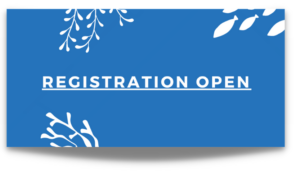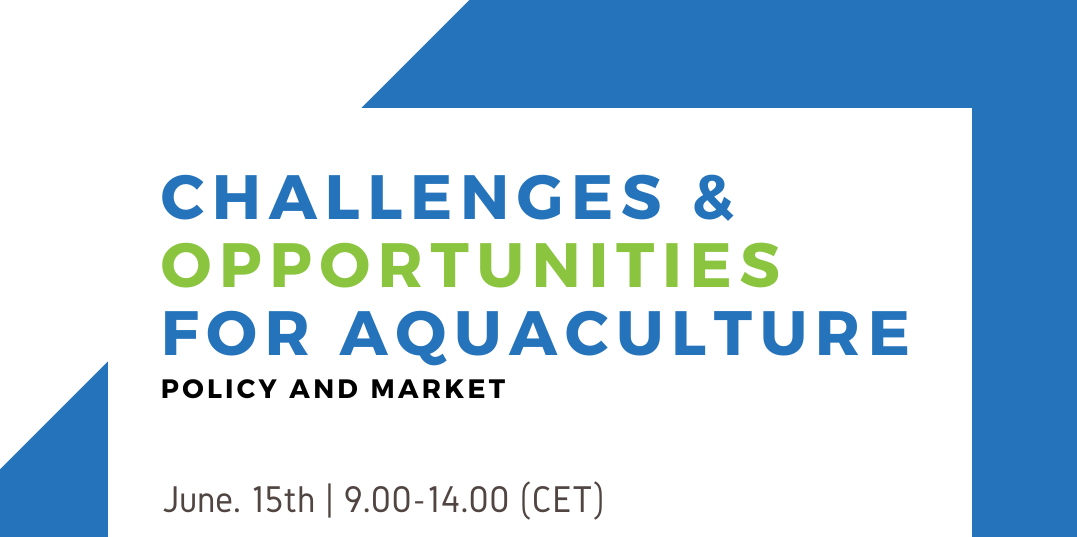
This workshop aims at disseminating emergent policy outcomes of the iFishIENCi, IMPAQT and GAIN H2020 projects and at identifying common themes, in order to support the implementation of the recently published “EU Strategic guidelines for a more sustainable and competitive EU aquaculture for the period 2021 to 2030” as well as to foster international benchmarking and cross fertilisation.
All sessions will start with short introductory presentations, followed by a panel discussion, with iterative audience participation through synchronous polling. Panels will include experts from the three Consortia organizing “Horizon4Aquaculture”, representatives of EU and National European policymakers, and private sector and third sector (producer organisations, standards organisations).
Detailed Agenda
09:00_ Welcome and Introduction. Dave Little (University of Stirling – GAIN)
09:05_ Session 1. Project overviews
- Marie Shrestha (Policy Champion of the IFISHIENCI project)
- Frank Kane (Project coordinator of the IMPAQT project)
- Roberto Pastres (Project coordinator of GAIN project)
Panel perspectives:
- Anton Immink (ThinkAqua)
- Péter LENGYEL (Head of Aquaculture Development Unit, Ministry of Agriculture, Hungary)
- Adam Hughes (SAMS, Senior Lecturer Sustainable Aquaculture; IDREEM & INTEGRATE)
Q&A. Discussion by the panel around prioritised questions posed by the audience
09:45_ BREAK
09:50_ Session 2. Pre-production
Introductory talk. Overview of key issues. Richard Newton (University of Stirling-GAIN)
Panel perspectives:
- Lindsay Pollock (Cargill)
- Dan Lee (IGAA/BAP)
- Matt Sprague (Nutrition Analytical Service – University of Stirling)
Q&A. Discussion by the panel around prioritised questions posed by the audience
10:30_ BREAK
10:35_ Session 3. Production
Introductory talk. Policy issues around IMTA. Kati Michalek (SAMS, IMPAQT)
Panel perspectives:
- Paul Tett (SAMS)
- Damien Toner (BIM)
- Ian Payne (ASC)
Q&A. Discussion by the panel around prioritised questions posed by the audience
11:15_ BREAK
11:20_ Session 4. Post Production
Introductory talk: Policy issues of water reuse, suggestions for further research and policy development areas. Tamás Bardócz (AquaBioTech, iFishIENCi)
Panel perspectives:
- Martiña Ferreira (ANFACO, GAIN)
- Björgolfur Hávardsson (NCE Seafood Innovation, iFishIENCi)
- Paul Daniel Sindilariu (RAS farmer, FEAP representative)
Q&A. Discussion by the panel around prioritised questions posed by the audience
12:00_ BREAK
12:05_ Markets and consumption
Introductory talk: André Sobral Lopez (Longline Environment). Mass balance of consumption and production of aquatic products in the European Union.
Panel perspectives:
- Anneli Rost (ttz Bremerhaven)
- Gesche Krause (Alfred Wegener Institute)
- Rhianna Rees (MARA Seaweed)
Q&A. Discussion by the panel around prioritised questions posed by the audience
12:45_Conclusions
- Dave Little (University of Stirling – GAIN)
- David Bassett (General Secretary, EATIP)
Featured Speakers
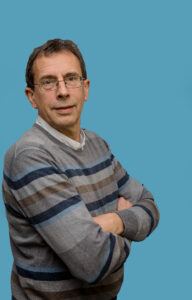
David Little
Session Chair David Little is currently the Chair of Aquatic Resource Development at the Institute of Aquaculture, University of Stirling and responsible for Internationalisation. He has more than 40 years professional experience in the sector. Research and educational interests focus on the societal impacts of aquaculture and, increasingly, highlighting the importance of seafood in food systems. As part of the Aquaculture Systems research group at the InstituteLink, he has developed and coordinated a wide range of research, both externally funded and through postgraduate research with a focus on Asia and Africa. He has published widely on the interface between aquatic food production, broader natural resource management and development, and been a vocal advocate and practitioner of interdisciplinary systems researchLink. He has been involved in many expert reviews and consultations such as those relating to Food Futures (UK Government), the potential for innovative feed sourcing strategies, (World Fish Centre), Sustainable Intensification (FAO-NACA), aquaculture certification (WWF, FAO) and the roles of aquaculture in poverty alleviation (DFID). He has recently been involved in the Blue Foods AssessmentLink and continues as a member of the Standards Oversight Committee of Global Aquaculture Alliance and the Aquaculture of the Monterey Bay Aquarium Seafood Watch Aquaculture Technical Committee.
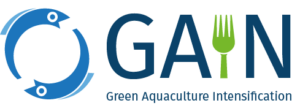
Roberto Pastres
Roberto Pastres is a Professor of Ecology at the Department of Environmental Sciences, Informatics and Statistics of Ca’ Foscari University of Venice. His 30-year long research activity has concerned the dynamic modeling of biogeochemical and ecological processes in aquatic ecosystems and the anthropogenic impact on ecosystem functioning. In the last two decades, he has focused on the development of modeling tools for the sustainable development of aquafarming, based on the simulation of the interactions among aquaculture and the environment. At present, is coordinating the EU funded project GAIN – Green Aquaculture INtensification in Europe.
pastres@unive.it
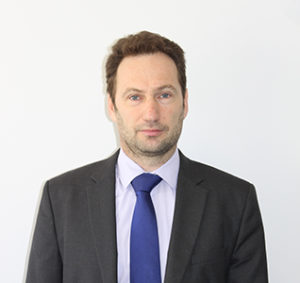
Tamás Bardócz
Tamás Bardócz has been working in the aquaculture industry in various positions for 25 years. After working on freshwater fish farms as a technician and later as a researcher, he was the delegate of the Hungarian Fish Farmers’ Association to the Federation of European Aquaculture Producers (FEAP) and chaired the freshwater commission of this organization for 4 years. Between 2010 and 2014 he managed all fisheries and aquaculture-related policy and regulatory developments in the Hungarian Ministry of Rural Development. During this period, as the country Director General for Fisheries he represented Hungary in high-level EU decision making and actively participated in the shaping of the Common Fisheries Policy as well as other related policies of the EU. Recently, as R&D&I Director of the AquaBioTech Group in Malta, he is involved in R&D policy development at national and EU level and is the iFishIENCi project coordinator.
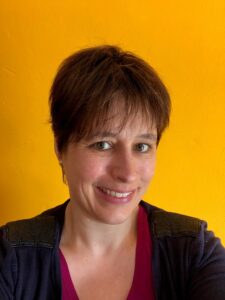
Marie Shrestha
Marie Shrestha graduated in Food Technology from the University of Technology Compiègne (UTC). For the last 15 years, Marie Shrestha has been involved in numerous European and national research projects in the area of Food Technology, Smart Packaging, and Bioprocess engineering as well as Communication of EU Bioeconomy research. Marie Shrestha is currently working as a senior project manager at ttz Bremerhaven, where she participates in the H2020 iFishIENCi project in the transversal role of Policy Champion.
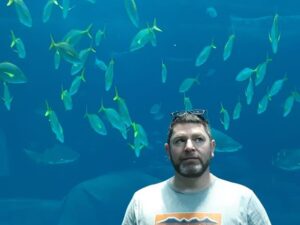
Frank Kane
Frank Kane is a marine biologist working with the Aquaculture Section of the Marine Institute in Ireland, having worked with the Institute since 2002. He has previous experience with the salmon farming and shellfish sectors. His areas of research include aquaculture and aquaculture management, integrated multi-trophic aquaculture and the development of novel and lower trophic species in aquaculture, sea lice management, and environmental monitoring. On behalf of the Marine Institute, he is currently coordinating the Horizon2020 IMPAQT project, which is looking to validate the concept of IMTA and to develop an intelligent management system for the managing of IMTA farms. This is a 3-year project which started in 2018.
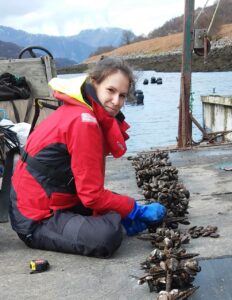
Kati Michalek
Dr Kati Michalek is a marine biologist with expertise in shellfish and seaweed cultivation, working at the Scottish Association for Marine Science (SAMS). She was awarded a Marie-Curie PhD scholarship (EU FP7 project CACHE-ITN 2013-2017) investigating the relationships between cultivation environment, stock genetics, and performance at longline mussel farms in Scotland. Her applied approach and focus on industrial application potentials earned her local and regional recognition in the scientific and aquaculture community. Since 2018, Kati has taken on a post-doctoral research assistant role at SAMS working in two EU H2020 projects IMPAQT (2018-2021) and ASTRAL (2020-2024) trialing the co-cultivation of extractive species (shellfish and seaweeds). Her focus lies in optimising farm design and cultivation practices as well as improving the monitoring management of aquaculture production sites.
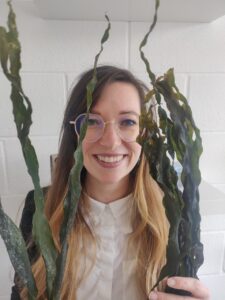
Rhianna Rees
Rhianna Rees heads up the Science, Seaweed, and Sales at Mara seaweed. As an experienced seaweed and environmental expert, she authored the MA thesis “Seaweed is Sexy: The consumption and utilisation of seaweed throughout British history and the marketing that surrounds it”. Now, she is committed to exploring seaweed ventures and accessing markets all around the world.
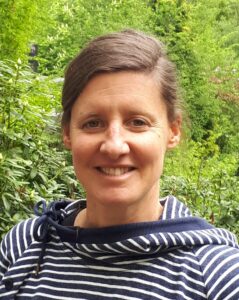
Anneli Rost
Anneli Rost graduated in Food Science from the Justus-Liebig-University, Giessen (JLU). She works actively in the areas of sensory analysis and consumer research. This includes quantitative and qualitative consumer studies, sensory profiling, as well as studies on buying and eating behaviour. Anneli Rost works as a project manager at ttz Bremerhaven being involved in the H2020 iFishIENCi project.
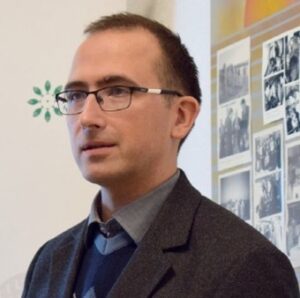
Peter Lengyel
Having graduated as an ecologist, Peter Lengyel worked for 16 years at the Research Institute for Fisheries and Aquaculture (HAKI), Szarvas, Hungary, first as a researcher, then in various administrative positions. Since 2003, he has been involved in the establishment and coordination of the Network of Aquaculture Centers in Central and Eastern Europe (NACEE), acting as its general secretary since 2010. In 2014, he moved to the Ministry of Agriculture, where he has been heading the Aquaculture Development Unit between 2014–2017 and from 2018 until the present. He is strongly involved in strategic planning of the Hungarian fisheries and aquaculture sector, as well as the preparation and implementation of support schemes. He currently holds the positions of fisheries director of Hungary, national representative of Hungary in the Administrative Board of the European Fisheries Control Agency (EFCA), and board member of the Hungarian Aquaculture Technology and Innovation Platform (HUNATiP).
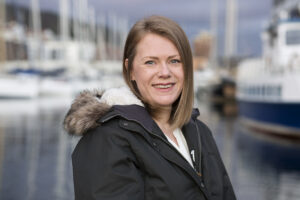
Lindsay Pollock
Dr Lindsay Pollock has worked in the aquafeed sector since 2007 and has held the role of Sustainability Manager for Cargill Aqua Nutrition, the North Sea since 2019. At Cargill Aqua Nutrition she is closely engaged with salmon farming customers on a range of sustainability issues, including sustainable raw material sourcing, certification, LCA, and driving reductions in the environmental impacts of salmon feed and farming. She is supporting the delivery of Cargill Aqua Nutrition’s major new sustainability programme – SeaFurther™ Sustainability, which set the goal of reducing the environmental footprint of salmon farming by 30% by 2030.
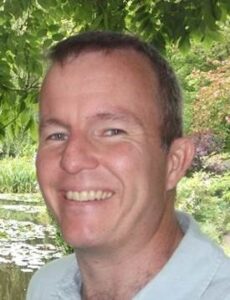
Anton Immink
Anton Immink has more than 25 years’ experience of aquaculture sector development across Asia, Africa and Europe. He has worked with international organisations, governments, major seafood buyers and supply chain companies, but Anton is most passionate about the long-term involvement of smallholder farmers in value chains. He wants to find solutions for farmers and regulators to address the many challenges that aquaculture continues to face as the sector grows, including environmental management at farm and resource level, coordinated health control, sustainable and quality inputs, better use of data, and equitable access to innovation. Anton is supporting the establishment of a new NGO called ThinkAqua that will work with partners around the world to address these challenges.
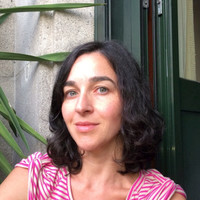
Martiña Ferreira
Martiña Ferreira is a biologist and Ph.D. from the University of Santiago de Compostela (Spain). She is a research officer and project manager in the aquaculture field in ANFACO-CECOPESCA. Some of the recent and current projects she has been involved in deal with different aspects of aquaculture production and sustainability: of oral vaccines and natural antiparasitic feed additives for rainbow trout, enhancement of opportunities for the industrial exploitation of microalgae, and more recently, bivalve culture and more recently, seaweed cultivation. In GAIN project, she is involved in the valorisation of dissolved nutrients in aquaculture wastewater through seaweed cultivation and in the analysis of regulatory aspects related to the full implementation of circular economy principles in EU aquaculture.
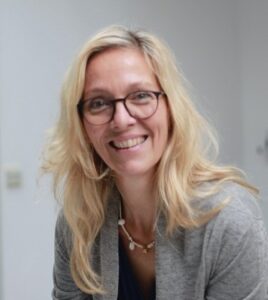
Gesche Krause
Dr. Gesche Krause is a social scientist, who works at the Alfred Wegener Institute Helmholtz Center for Polar and Marine Research (AWI), Germany. She was trained at the Universities of Kiel and Greifswald (Germany) and completed her PhD in Philosophy at the Department of Systems Ecology, Stockholm University (Sweden). Next to working for several years with various companies in the private sector, she worked for 10 years in Brazil along the Amazon as well as several years on ornamental trade dynamics and coastal governance issues in Indonesia. The socio-economic prospects of aquaculture have been a further research avenue since 2000. She founded and chairs the International Commission of the Exploration of the Seas (ICES) expert working group on social and economic dimensions of aquaculture (WGSEDA), chairs the EU4Oceans WG Food from the Ocean and has acted as expert on the topic Food from the Oceans in support of the European Scientific Advice Mechanism (SAM) via SAPEA (Science Advice for Policy by European Academies).
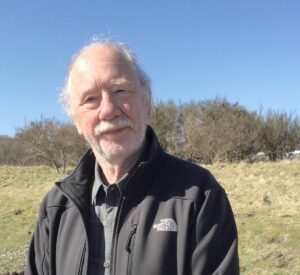
Paul Tett
Dr Paul Tett is a Principal Investigator in Coastal Systems at the Scottish Association for Marine Science and an honorary Professor at Heriot-Watt and Edinburgh Napier Universities. His interests lie in the workings of maritime social-ecological systems and he is currently responsible for social science/policy work-packages in two H2020 projects: Aquavitae concerns low-trophic aquaculture and IMTA; BlueGrowthFarm is developing a large floating offshore platform with a fish-farm and renewable energy generation from wind and waves.

Paul- Daniel Sindilariu
Dr. Paul-Daniel Sindilariu, Head of Production, Tropenhaus Frutigen, Switzerland.
MSc. in Fishery Science and Aquaculture from Humboldt University in Berlin, Germany, a PhD in Aquaculture from Humboldt University, and an MBA from Bern (CH) and Rochester (US) University. At the moment head of Production at Tropenhaus Frutigen, one of the major Aquaculture producers in Switzerland, and the Swiss representative in FEAP.
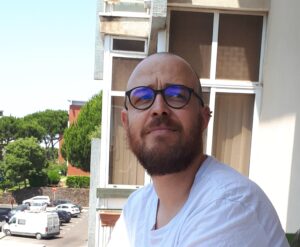
Andre Sobral Lopes
Andre Sobral Lopes is a scientific associate at Longline Environment, with a bachelor’s in Marine Sciences and master in Water Management and Engineering. Has been involved in risk assessment of the propagation of fish diseases for inland aquaculture in Eastern Europe under different climate change scenarios under the CERES project. Currently working in the GAIN project, he has worked on species-detailed seafood consumption estimates and potential projections in European countries, and well as the role of emerging technologies in connecting different stakeholders in the seafood value-chain and in developing technology-oriented for aquaculture farmers management.
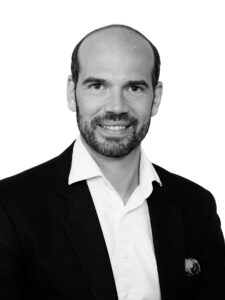
David Bassett
Assuming the role of General Secretary at the beginning of 2021, David Bassett is responsible for the day to day management and strategic direction of EATiP – the European Aquaculture Technology & Innovation Platform. Prior to this, he worked as a Senior Advisor for EATiP whilst project managing a Horizon 2020 funded international collaboration and support action considering the development of European/South Asian aquaculture through multi-stakeholder platform working. For ten years he led a UK aquaculture trade association and has served on a number of UK, EU, and international committees and project consortia addressing a wide range of thematic areas including research and development, policy & governance, certification, production & marketing and skills, education and training.

Damien Toner
Damien works for Irelands Seafood Development Agency, BIM. Having worked in the commercial shellfish and finfish sectors previously, Damien’s role at BIM focuses on new species and innovations. He has significant experience with RAS design and operation in hatcheries and Nursery systems and his work includes helping companies develop new products and services for the aquaculture industry. Damien is also interested in how multi-trophic aquaculture can be commercialised and incorporated into the circular economy and He has been particularly involved in the OASIS project developing freshwater IMTA systems.
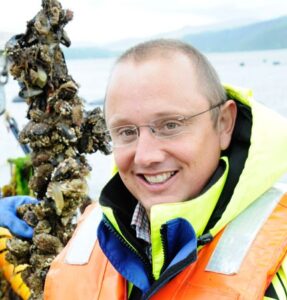
Adam Hughes
Adam Hughes is a marine ecologist with over 20 years’ experience working in marine resource management and aquaculture, interested in the development of sustainable production systems for marine animals and plants. This has involved developing close links with small and large companies to diversify the industry and develop alternative high-value products. He was also the co-ordinator of the FP7 project IDREEM, in which 15 partners across Europe collaborate to develop and assess the social, economic, and environmental performance of Integrated Multi-Trophic Aquaculture, and is involved in other national, European, and international projects. He has sat on several ministerial working groups for the development of sustainable aquaculture, and on the Marine Alliance for Science and Technology Scotland (MASTS) steering committee for sustainable aquaculture and is editor for the journal Aquaculture Environment Interactions. With an extensive research interest in the development of the Blue Economy both in the context of Small Island Developing States (SIDS) and within Europe, he worked with the Commonwealth Secretariat to provide guidelines for developing the Blue Economy in Seychelles and other SIDS, being an honorary Research Fellow with the Blue Economy Research Institute at the University of Seychelles.
